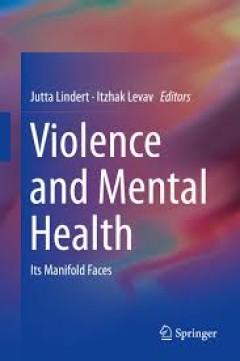Filter by

Doing economics :what you should have learned in grad school-but didn't
"A practical guide for research economists to navigate the non-research aspects of their work, including university service, mentorship, and grant writing"--OCLC-licensed vendor bibliographic record.
- Edition
- -
- ISBN/ISSN
- 0262369192
- Collation
- 1 online resource.
- Series Title
- -
- Call Number
- -

Kinds come first :age, gender, class, and ethnicity give meaning to measures
An argument that the meaning of a psychological or biological measure depends on the age, gender class, and ethnicity of the human subject.OCLC-licensed vendor bibliographic record.
- Edition
- -
- ISBN/ISSN
- 9780262355049
- Collation
- 1 online resource (216 pages)
- Series Title
- -
- Call Number
- -

The individual in the animal kingdom
Originally published in Cambridge, Eng. by University Press and New York by G.P. Putnam's Sons, 1912."The first work to explore the major evolutionary transitions in organismal complexity, the many and important roles of individuality, and the relationship between individuals and species"--OCLC-licensed vendor bibliographic record.
- Edition
- -
- ISBN/ISSN
- 0262369982
- Collation
- 1 online resource.
- Series Title
- -
- Call Number
- -

Garage
A secret history of the garage as a space of creativity, from its invention by Frank Lloyd Wright to its use by start-ups and garage bands. Frank Lloyd Wright invented the garage when he moved the automobile out of the stable into a room of its own. Steve Jobs and Steve Wozniak (allegedly) started Apple Computer in a garage. Suburban men turned garages into man caves to escape from family life.…
- Edition
- -
- ISBN/ISSN
- 9780262347822
- Collation
- 1 online resource (224 pages).
- Series Title
- -
- Call Number
- -

Why nuclear disarmament matters
From the former UN head weapons inspector in Iraq, a plea for a renewed global disarmament movement.OCLC-licensed vendor bibliographic record.
- Edition
- -
- ISBN/ISSN
- 9780262268738
- Collation
- 1 online resource (95 pages).
- Series Title
- -
- Call Number
- -

Protocells :bridging nonliving and living matter
The first comprehensive general resource on state-of-the-art protocell research, describing current approaches to making new forms of life from scratch in the laboratory.OCLC-licensed vendor bibliographic record.
- Edition
- -
- ISBN/ISSN
- 9780262282093
- Collation
- 1 online resource (xxi, 684 pages, 16 unnumbered pages of plates) :illustrations (some color)
- Series Title
- -
- Call Number
- -

The allure of machinic life :cybernetics, artificial life, and the new AI
"A Bradford Book."This account of the creation of new forms of life and intelligence in the sciences of cybernetics, artificial life and artificial intelligence analyses both their similarities and their differences in actualising life. The author draws on the work of scientists as well as work in contemporary philosophy and cultural theory.OCLC-licensed vendor bibliographic record.
- Edition
- -
- ISBN/ISSN
- 9780262276351
- Collation
- 1 online resource (xiii, 461 pages) :illustrations
- Series Title
- -
- Call Number
- -

Silent spill :the organization of an industrial crisis
In the Guadalupe Dunes, 170 miles north of Los Angeles and 250 miles south of San Francisco, an oil spill persisted unattended for 38 years. Over the period 1990-1996, the national press devoted 504 stories to the Exxon Valdez accident and a mere nine to the Guadalupe spill -- even though the latter is most likely the nation's largest recorded oil spill. Although it was known to oil workers in …
- Edition
- -
- ISBN/ISSN
- 0585442568
- Collation
- 1 online resource (x, 220 pages) :illustrations.
- Series Title
- -
- Call Number
- -

Violence and Mental Health Its Manifold Faces
Violence is one of the most important challenges, not only for public health systems, but also for public mental health. Violence can have immediate as well as long-term and even transgenerational effects on the mental health of its victims. This book provides a comprehensive and wide-ranging assessment of the mental health legacy left by violence. It addresses the issues as they affect states,…
- Edition
- -
- ISBN/ISSN
- 978-94-017-8999-8
- Collation
- -
- Series Title
- -
- Call Number
- -

Video Bioinformatics From Live Imaging to Knowledge
The advances of live cell video imaging and high-throughput technologies for functional and chemical genomics provide unprecedented opportunities to understand how biological processes work in subcellular and multicellular systems. The interdisciplinary research field of Video Bioinformatics is defined by Bir Bhanu as the automated processing, analysis, understanding, data mining, visualizati…
- Edition
- -
- ISBN/ISSN
- 978-3-319-23724-4
- Collation
- -
- Series Title
- -
- Call Number
- -
 Computer Science, Information & General Works
Computer Science, Information & General Works  Philosophy & Psychology
Philosophy & Psychology  Religion
Religion  Social Sciences
Social Sciences  Language
Language  Pure Science
Pure Science  Applied Sciences
Applied Sciences  Art & Recreation
Art & Recreation  Literature
Literature  History & Geography
History & Geography